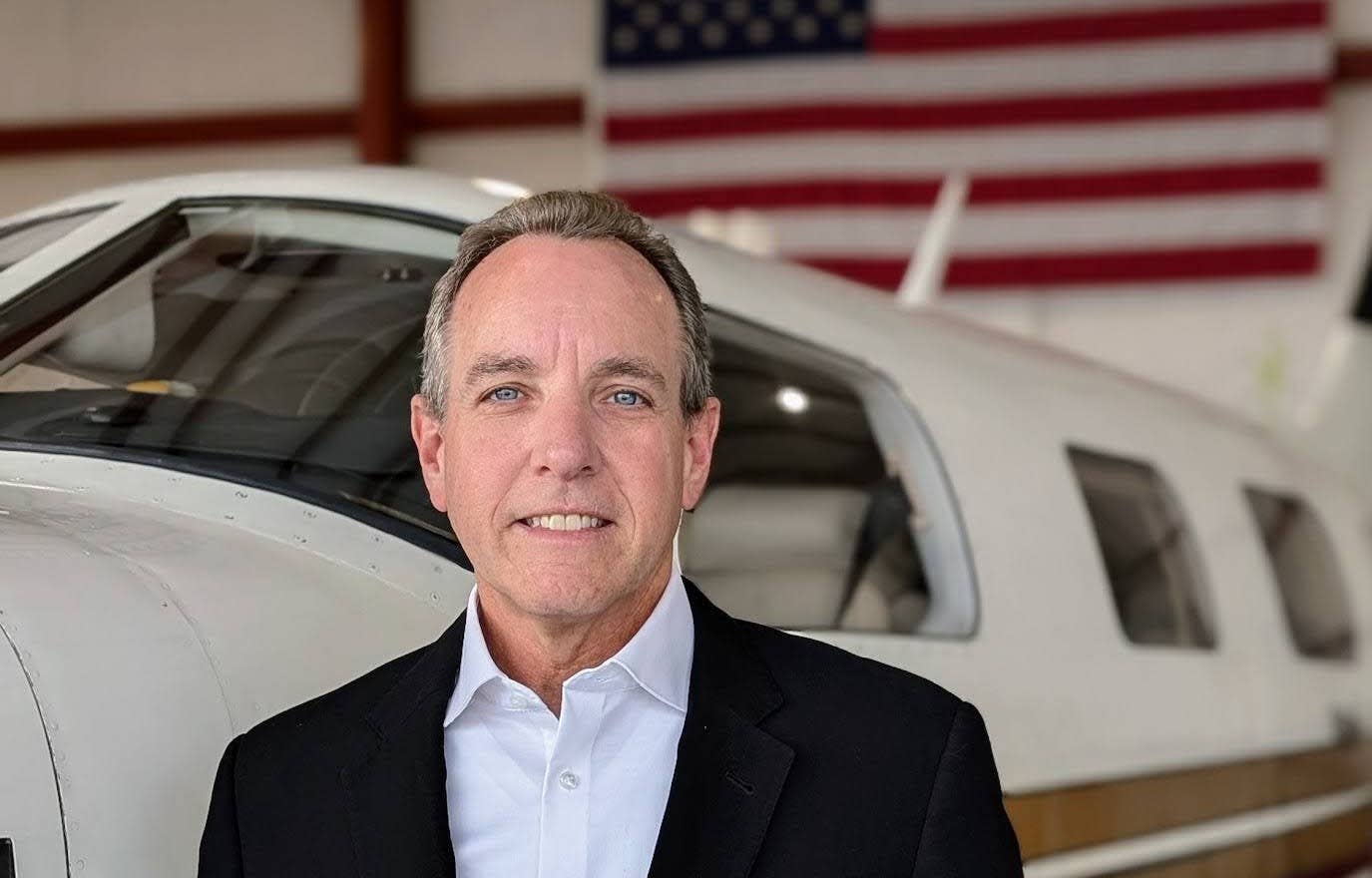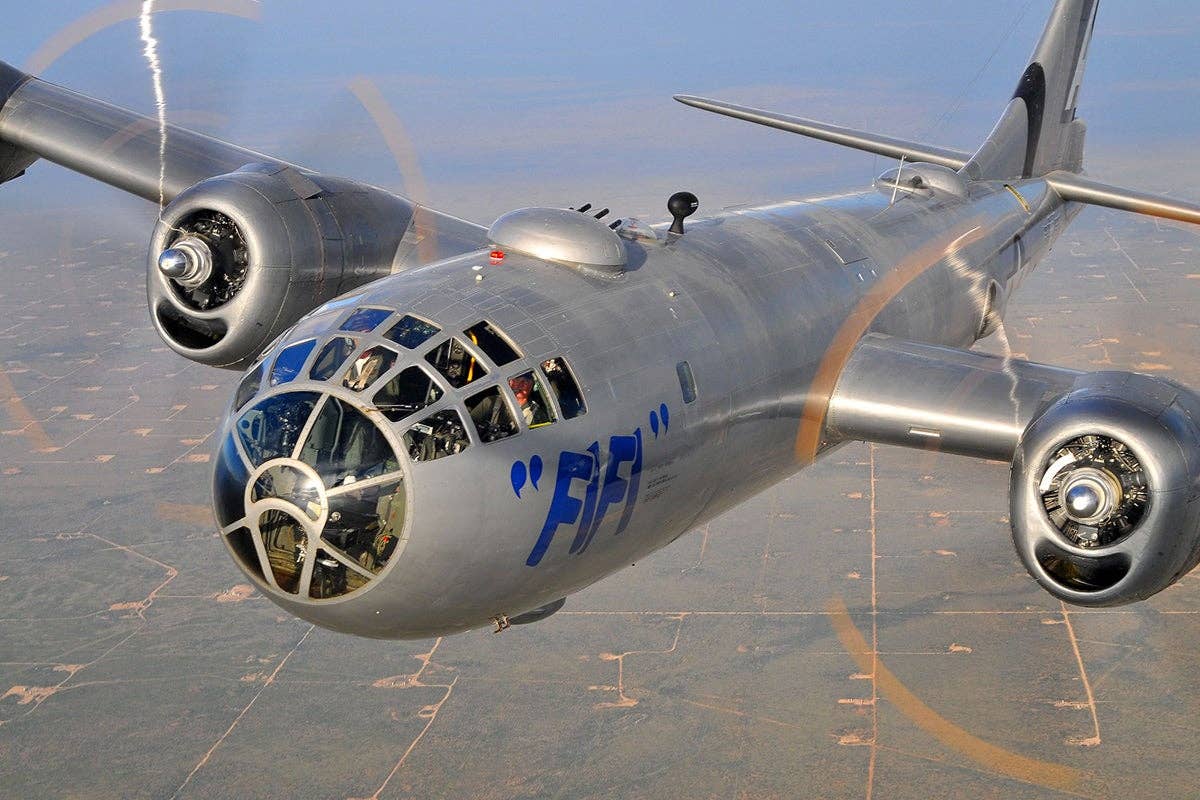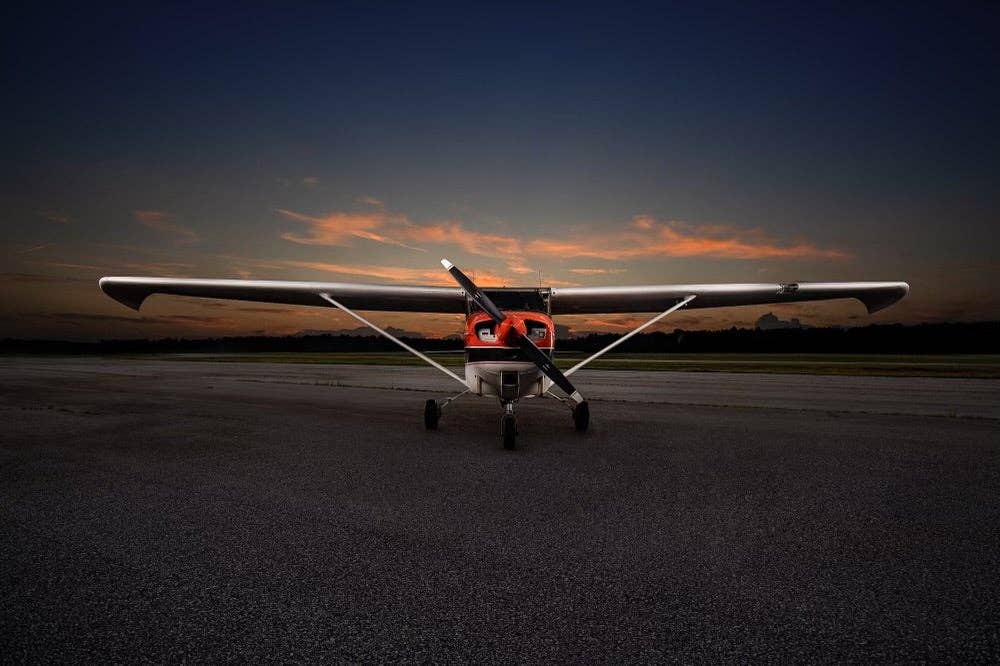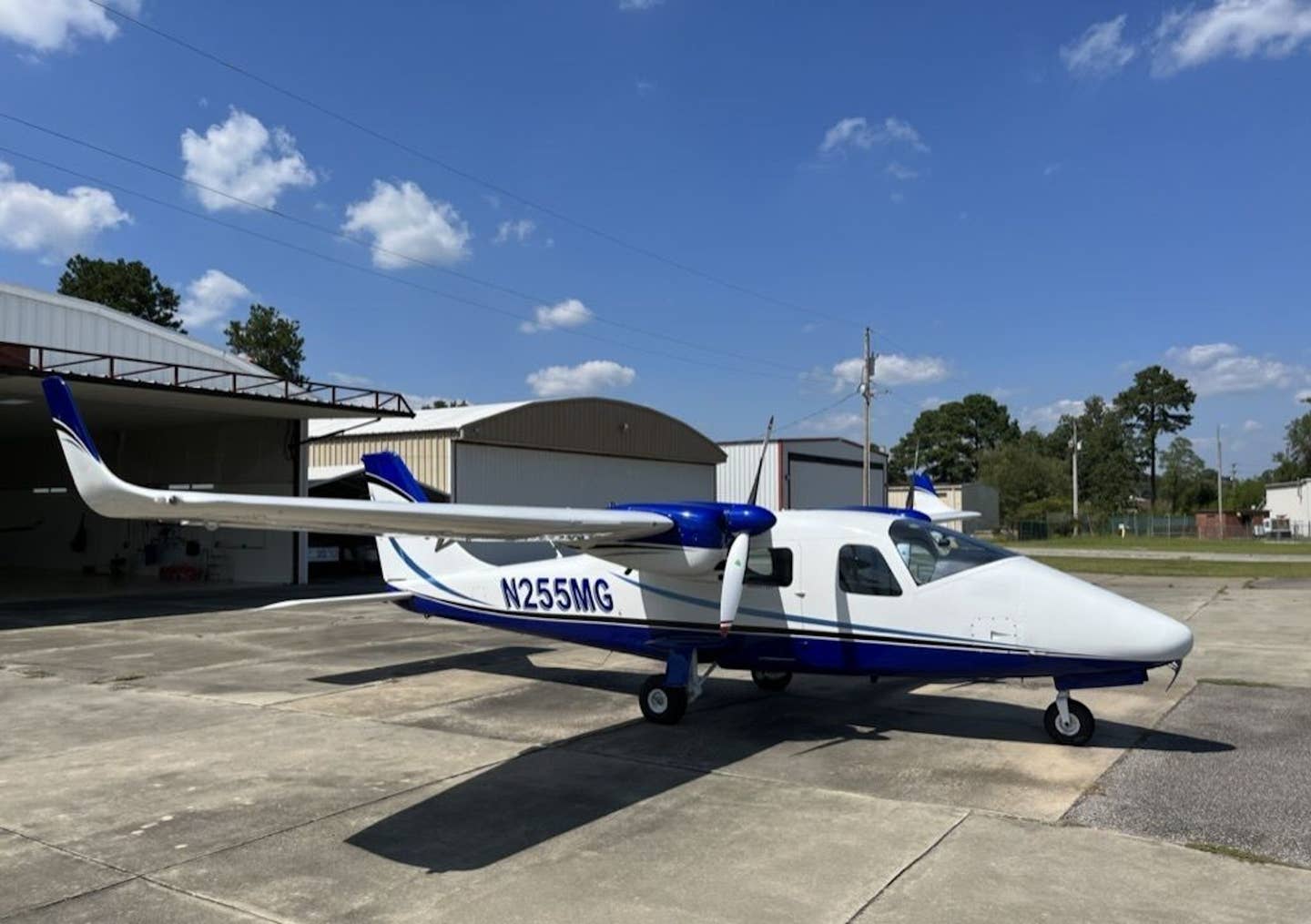Tecnam Brings the P-Mentor to North America
EpicSky Aviation signed an agreement to buy 15 P-Mentors on Wednesday during EAA AirVenture in Oshkosh, Wisconsin.
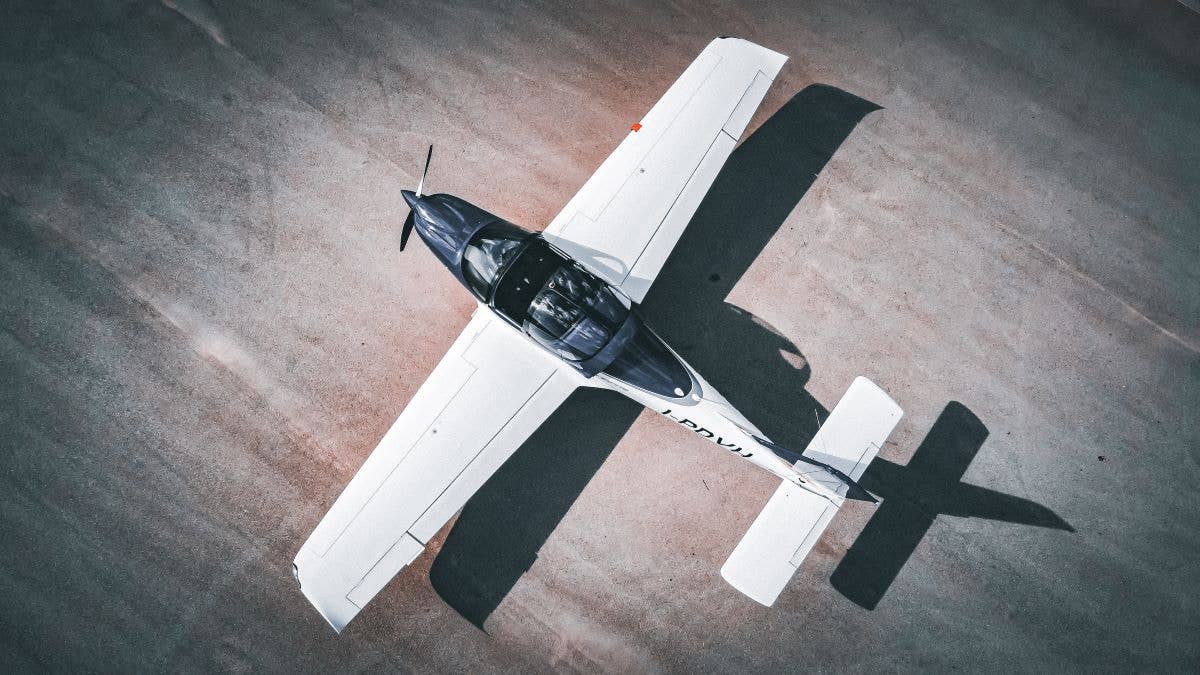
The P-Mentor is a two-seat aircraft designed to be a primary training platform and is equipped with Garmin avionics. [Courtesy: Tecnam]
Editor's note: This article first appeared on Plane & Pilot.
Tecnam's P-Mentor trainer—already a bestselling training platform across Europe—is coming to the U.S. market, the manufacturer announced Wednesday at EAA AirVenture in Oshkosh, Wisconsin.
And judging by the enthusiasm of flight school buyers in the U.S., the aircraft is set to disrupt a market dominated by an aging fleet of primary trainers, often half a century old or more.
The P-Mentor is a two-seat aircraft designed to be a primary training platform, equipped with Garmin avionics and boasting almost unheard-of fuel economy at 3.7 gallons per hour. This low consumption translates to low operating costs for owners and renters, and means lower CO2 emissions.
“People ask, why P-Mentor—what’s behind that name?” said Dave Copeland, director of sales in the U.S. for Tecnam. “P,” he said, is for the Pascali family “[that stands] behind every one of the 7,500 aircraft that have been delivered over the past 75 years. In addition, the ‘P’ stands for passion, of which each Tecnam is taken from dream to reality. And, of course, the ‘P’ also stands for pilots who will grace the controls.”
As for the second part of its name, Copeland said, “the P-Mentor was derived by the Pascali family from the heritage of naming solutions that relates to the four pillars of mentoring.” These include the matching of a strong partnership, training, coaching, and support.
“The P-Mentor was carefully designed to offer the ultimate platform for training,” Copeland said. “It’s been over half a century since the aviation world has delivered an aircraft that is capable and approved to fly like the P-Mentor. It’s very hard to compare the P-Mentor to any other aircraft in the world…No other aircraft in over 60 years has been certified to the standards that the P-Mentor has been approved [for]. Yes—60 years.
“Tecnam looks at general aviation as a today thing—not as a legacy thing,” Copeland added. “At Tecnam, we feel students, pilots, and our environment deserve more than an aircraft designed back in the ’40s, the ’50s, and the ’60s. They deserve a current aircraft that allows them to learn in a comfortable cabin that offers the latest in ergonomic amenities along with an avionics suite that offers friendly flyer touch-screen avionics, a three-axis autopilot dynamic…and the list goes on.”
Tecnam P-Mentor Specs:
- Engine: Rotax 912iSc3
- Power: 100 hp
- Fuel Consumption: 3.7 gph
- Fuel Capacity: 34 gal.
- Max Takeoff Weight: 1,587 lb.
- Empty Weight, Standard: 948 lb.
- Useful Load: 640 lb.
- Max Cruise Speed: 120 kts.
- Stall Speed (flaps down power off): 44 kts.
- Ceiling: 13,000 ft.
- Rate of Climb: 750 fpm
- Range: 730 nm
The P-Mentor’s fuel consumption results in up to nine operating hours between refuelings, a boon for flight schools and GA owners alike, according to Copeland. This also means a lower environmental impact per flight hour.
“The P-Mentor…offers the lowest CO2 footprint of any aircraft of its type in the world,” said Copeland. “The P-Mentor is a simple and sustainable platform and a new solution to guide students through maybe their first flight through their advanced ratings in one single platform. The P-Mentor’s constant-speed propeller, paired with a tapered wing, specifically designed with a laminar airflow, and a one-piece leading edge allow P-Mentor to pass the CS-23 amendment requirements for low-speed stall characteristics without the requirement of a ballistic recovery system.”
Copeland added that a BRS is optional along with a simulated gear handle for advanced proficiencies.
As part of Wednesday’s ceremony, Tecnam invited representatives from the flight schools that have committed to P-Mentor purchases for their fleet to speak about why they opted for this training platform over other options in the market. These included Kansas City-area-based Kilo Charlie Aviation, Vermont Flight Academy, and Stephen F. Austin State University in Texas.
In a surprise, Walter Da Costa, chief sales officer for Tecnam, stepped up to the podium with a special announcement.
“I would like to inform today that we just right now confirmed a new member of the Tecnam family…at the show,” said Da Costa, inviting founder and CEO Ed Stefan of Des Moines, Iowa-based EpicSky Flight Academy to the podium to sign an agreement to a purchase 15 P-Mentors for its fleet. Tecnam will begin delivering the P-Mentors at a rate of two to three per month beginning in June 2024, said Da Costa.
“When someone comes in our door…[and] don’t sign up, [we] feel like we did them a disservice,” said Stefan. “We feel like we hurt them. We feel like we didn’t adequately explain to them that this is a golden age of aviation. The opportunities are limitless.”
Stefan went on to rave about how the P-Mentor will benefit the flight school.
“We have a purpose-built plane that sips the fuel, so it’s less money for our students,” he said. “We have the latest and greatest technological advancements—everything a growing boy or girl could possibly think to ask for. We have a cockpit experience, which is second to none. I mean, Italian leather—how could you go wrong?”
Building on a theme of family that permeated the press conference, Stefan added, “Walter and I met—when did we meet, Walter?”
“Yesterday,” answered Da Costa.
“Yesterday,” confirmed Stefan, addressing the crowd again. “Did you hear that? It was yesterday. And here we are. But the story is so compelling. If anyone listening to this has not looked at Tecnam as a training platform, I have to ask: What are you thinking? What are you doing? Why are you letting your students fly, not just on dad’s airplane but on dad’s dad’s airplane? Why are you letting your students fly in technology that was built in the ’40s and ’50s? Come on guys, this is 2023. And now we have a manufacturing organization that understands that it’s 2023.”
Copeland closed by citing Tecnam’s pride in its engineering, design, certifications, production line, employment expansions, product improvements, new model introductions, sustainable platforms, customers, and more.
“Our top-down commitment to general aviation has led us to these hallowed grounds here at Oshkosh, where aviators fill the air and future pilots seek what’s next,” he said. “We trust that you see why Tecnam is proof that the future of general aviation is alive and well and that we’ve dedicated the future of flight, so we can all soar higher.”
The Tecnam P-Mentor is featured on the cover of the July 2023, Issue 939 of FLYING.
Editor's note: an earlier version of this story incorrectly listed EpicSky Flight Academy as "EpicSky Aviation," and has since been corrected.

Subscribe to Our Newsletter
Get the latest FLYING stories delivered directly to your inbox


